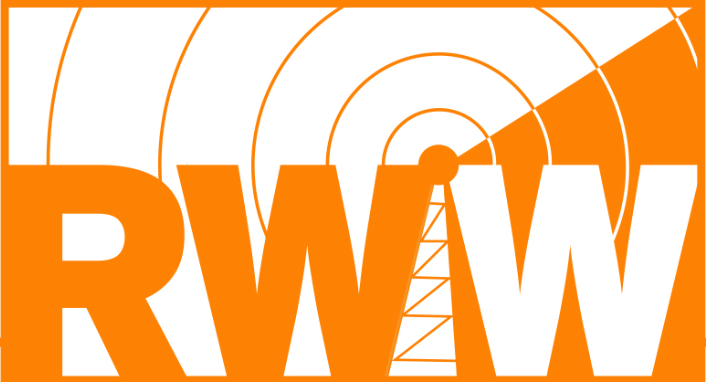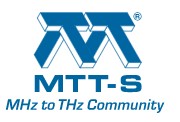Workshops
All Workshops are scheduled for Sunday 18th January 2026 from 1:30pm to 5:30pm.
Advances in Solid State Power Amplifiers for All Platforms
Organizer: Naresh Deo (Visionary Solutions)
Abstract
Solid State Power Amplifiers (SSPA) are finding an increasingly greater number of critical applications in a wide range of platforms and business sectors. These include communications, remote sensing, scientific, industrial and defense applications. SSPAs are becoming the power amplifier of choice in transmitters for communication links and radars for all platforms from Space and airborne to ground and ocean-based systems.
The growth in the use of SSPAs is fueled by many recent developments as well as their inherent advantages over tube-based power amplifiers. In this workshop we will provide information and insight from a set of highly experienced speakers on technological advances and innovations. These developments have enabled many systems operating in the microwave and millimeter wave to sub-Terahertz frequency domain. They have the potential to revolutionize the industries and fuel many emerging applications. Recent advances have contributed to technical feasibility, economic viability and commercial success of SSPA for virtually every transmitter and source in microwaves through sub-terahertz domains. Some of the topics covered in this workshop will include:
1. Semiconductor devices (Gallium Nitride, Indium Phosphide HBT, etc.)
2. Thermal Management Methods
3. Power Combining and packaging
4. Multipaction and RF breakdown considerations
5. Device qualification and reliability evaluation
6. Success stories, notable accomplishments and lessons learned
7. Comparative study and Future trends
This workshop will be particularly valuable to technologists, mission and payload planners, designers and developers of almost any microwave or millimeter wave system or equipment involving power amplifiers.
Ultra Wideband in Space Systems
Organizers: Martin Drobczyk and Andre Lübken (German Aerospace Center, DLR)
Abstract
Ultra-Wideband (UWB) is a key technology for next-generation space systems, offering a solution for wireless avionics. By replacing physical cabling, UWB can reduce spacecraft harness mass, simplifying design, integration, and testing procedures for space systems as well as provide precise ranging capabilities.
The technology provides robustness against interference and multipath fading effects, ensuring reliable communication in complex metallic environments. Furthermore, it delivers centimeter-level precision in ranging. These features, combined with high data rates and low power consumption, make UWB a suitable tool for both internal spacecraft networks and external navigation.
This workshop will provide a forum to address the challenges of deploying and qualifying UWB systems for the harsh space environment. We will bring together researchers and engineers to discuss system integration, radiation hardening, channel characterization and standardization efforts needed to ensure the reliability of these mission-critical systems.
Power Amplifier Design for Linearity
Organizers: Gregor Lasser (Chalmers University of Technology) and Anna Piacibello (Politecnico di Torino)
Abstract
Modern communication systems demand energy-efficient power amplifiers (PAs) capable of delivering sufficient output power to fulfil link budget requirements. While digital predistortion (DPD) is widely adopted in current systems, a certain level of inherent PA linearity is required to ensure effective linearization through DPD. Additionally, with the evolution toward massive MIMO and higher-frequency operation, the number of antenna elements, and thus PAs, increases significantly. This makes individual DPD implementation per array element increasingly impractical, creating a strong need for intrinsically more linear PAs.
Although most PA designers, even at an early stage, are familiar with optimizing for output power and efficiency, achieving and evaluating linearity remains more challenging. Not only does it require a different design mindset and simulation strategy beyond traditional load-pull techniques, but the very definition of linearity is non-trivial. Multiple figures of merit — such as IMD, ACPR, EVM, and NPR — exist to quantify linearity, each emphasizing different aspects of performance depending on the application. This diversity of metrics further complicates the design process and calls for a deeper understanding of which linearity characteristics matter most in a given system context.
This workshop aims to provide to PA designers of all experience levels with both theoretical background and practical tools for addressing linearity. It will first cover relevant theoretical considerations and circuit-level techniques, followed by a practical demonstration from a leading microwave design software vendor on how to assess PA linearity through simulation.
Next-Generation Power Amplifier Measurements and Modeling for Space-Based Communications
Organizer: Nizar Messaoudi (Keysight Technologies)
Abstract
The rapid expansion of LEO satellite networks and beamforming architectures is driving new challenges in power amplifier (PA) design and validation for space-based communications. This workshop brings together leading industry experts and measurement specialists to explore the latest innovations in PA and beamformer IC (BFIC) technologies for space applications.
The session will open with insights from Analog Devices, who will provide an overview of emerging LEO system architectures and evolving challenges in PA design for space. This will be followed by a discussion on recent innovations in satellite-side RF front-end design, with a focus on how early-stage modeling and measurement—“shifting left”—can significantly improve time-to-market and performance outcomes.
Next, Keysight Technologies will lead a segment introducing modern PA measurement techniques using modulated signals. Attendees will gain practical exposure through live demonstrations of signal generator-based PA testing methodologies, including:
Cable de-embedding for power correction
- Match-corrected measurements for EVM, output power, and DPD complexity
- Wideband Active Load Pull (WALP) techniques, including correlation with antenna S-parameters across bandwidth and steering angles
The workshop will also feature simulation workflows using SystemVue and RFPro, including load modulation analysis and point grid generation for WALP. This workshop is ideal for RF engineers, system architects, and researchers working on satellite communications, PA design, and advanced measurement systems. Attendees will leave with a deeper understanding of how to integrate measurement and simulation to accelerate innovation in space-based RF systems.
Hands on Workshop: Phase Noise and Vector Network Analysis Fundamentals
Organizers: Hermann Boss, Paul Peterson (Rohde and Schwarz)
Abstract
In the rapidly evolving field of RF and microwave engineering, understanding phase noise and vector network analysis is crucial for designing high-performance systems such as oscillators, amplifiers, and communication devices. This interactive workshop provides a comprehensive introduction to these essential concepts, blending theoretical foundations with practical, hands-on experience using state-of-the-art test and measurement equipment.
The session begins with a concise PowerPoint presentation covering the fundamentals. Participants will learn what phase noise is and explore its sources, impacts on system performance, and common measurement techniques. We will then delve into vector network analyzers (VNAs), explaining their role in characterizing two-port networks, basic architecture (including sources, receivers, and couplers), and key measurements like S-parameters, impedance, and time domain concepts.
The majority of the workshop shifts to practical applications, where attendees will engage in guided experiments. Using RF test equipment, participants will measure the phase noise of an oven-controlled crystal oscillator (OCXO), analyzing its stability under various conditions. Additionally, we will characterize an amplifier and a filter’s parameters, such as gain, return loss, and/or insertion loss.By the end, participants will gain confidence in interpreting results, troubleshooting common issues, and applying these techniques to real-world scenarios. Ideal for engineers, technicians, and students with basic RF knowledge, this workshop equips you with actionable skills to enhance your measurement proficiency.




